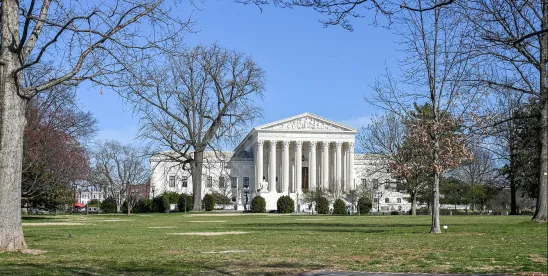The U.S. Supreme Court’s October Term 2024 begins Oct. 7, and at least two cases on the Court’s docket present potentially important implications for employers nationwide. This GT Alert provides a brief overview of the issues presented and the stakes they raise.
Evidentiary Burdens of Proof for Applicability of FLSA Exemptions
The Fair Labor Standards Act (FLSA) is the federal statute that, among other things, requires covered employers to pay most workers minimum hourly wages and overtime premium pay. However, the law contains numerous exemptions to these requirements. For example, employers need not pay overtime to bona fide executive or administrative employees, learned professionals, or outside salespersons. In E.M.D. Sales, Inc. v. Carrera (No. 23-217), the Court will consider whether an employer claiming applicability of one of those exemptions must meet a preponderance of the evidence standard or instead show clear and convincing proof.
Plaintiffs in the case are sales representatives who alleged their employer, a food products distributor, failed to pay them overtime under the FLSA. The employer argued they were not eligible for overtime under the statute’s outside salesperson exemption. A unanimous panel of the Fourth Circuit Court of Appeals found in the employees’ favor, holding that under Fourth Circuit precedent, the employer was required to prove applicability of the FLSA exemption by clear and convincing evidence and had failed to do so. The panel acknowledged the employer’s argument that the Supreme Court in Encino Motorcars, LLC v. Navarro, 138 S.Ct. 1134 (2018) “rejected a canon of construction calling for narrow interpretation of the FLSA’s exemptions,” but disagreed that this decision rendered its heightened burden of proof precedent “untenable.”
The Supreme Court granted certiorari in June 2024, limited to a single question: “Whether the burden of proof that employers must satisfy to demonstrate the applicability of an FLSA exemption is a mere preponderance of the evidence – as six circuits hold – or clear and convincing evidence, as the Fourth Circuit alone holds.” Oral argument is scheduled for Nov. 5.
Availability of Attorney Fee Awards to Prevailing Party on Preliminary Injunction Applications
Under the provisions of 42 U.S.C. § 1988, a “prevailing party” in certain civil rights actions can recover their reasonable attorney fees. This includes a plaintiff asserting race-based employment discrimination claims under 42 U.S.C. § 1981. In Lackey v. Stinnie (No. 23-621), the Court will consider whether a party who prevails on an initial preliminary injunction application without ultimately prevailing on the merits may nonetheless be a “prevailing party” eligible to seek a fee award under § 1988.
Plaintiffs in the case sued the Commissioner of the Virginia Department of Motor Vehicles to challenge the loss of their drivers’ licenses under a state statute requiring licensure loss for failure to pay certain court fines and fees. Plaintiffs successfully obtained a preliminary injunction reinstating their licenses and enjoining further enforcement of the statute upon the district court’s “concluding that [their due process claim] was likely to succeed on the merits.” Prior to trial on the merits, however, the legislature eliminated the statute at issue. The district court dismissed the case as moot but denied plaintiffs’ application for a fee award on their successful preliminary injunction. A divided panel of the Fourth Circuit Court of Appeals vacated that denial, holding that under Supreme Court precedent, “When a preliminary injunction provides the plaintiff concrete, irreversible relief on the merits of her claim and becomes moot before final judgment because no further court-ordered assistance proves necessary, the subsequent mootness of the case does not preclude an award of attorney’s fees.”
The Supreme Court granted certiorari in April 2024. While the case does not factually arise in an employment context, the two questions the Court will address may have impacts for employers facing claims under § 1981: namely, whether to seek fees under § 1988 (i) “a party must obtain a ruling that conclusively decides the merits in its favor, as opposed to merely predicting a likelihood of later success,” and (ii) “a party must obtain an enduring change in the parties’ legal relationship from a judicial act, as opposed to a non-judicial event that moots the case[.]” Oral argument is scheduled for Oct. 8.
Conclusion
The Court’s new term is still taking shape, and more cases with potential implications for employers will likely reach the Court’s docket. For now, these two warrant employers’ attention.



 />i
/>i

